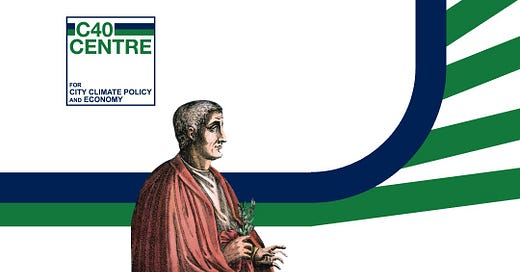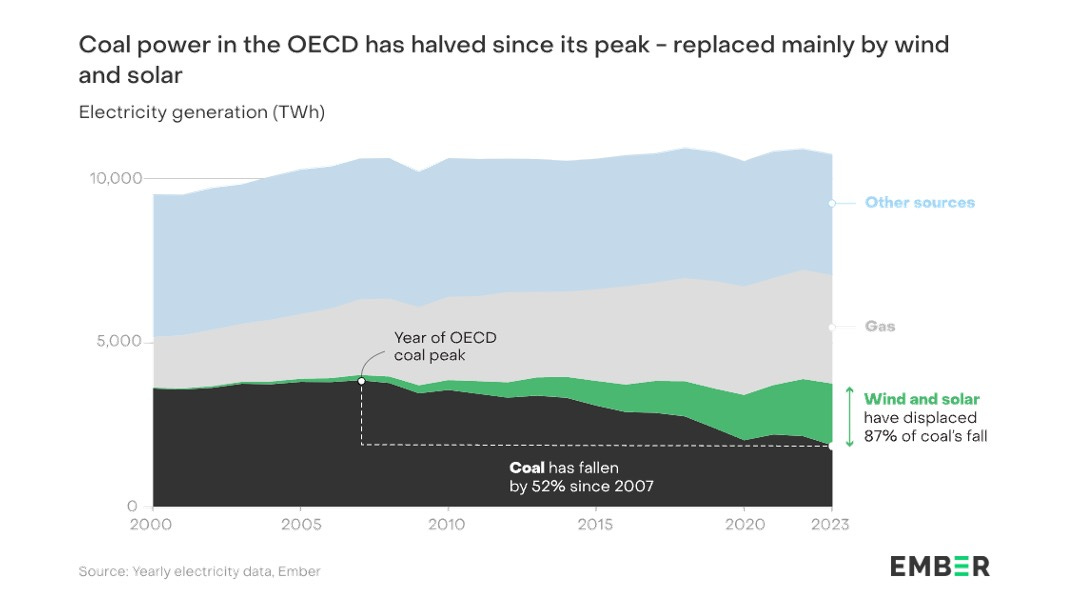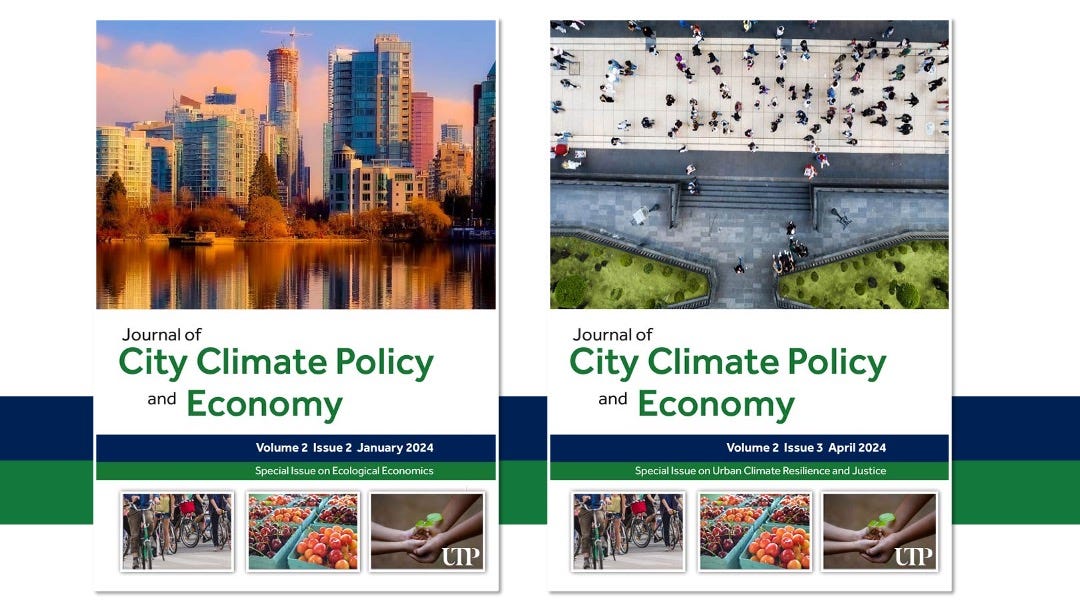Finding hope in climate action
Cities are our chance to defy gloomy expectations, look to them for action and hope
Humans are hopeful animals. Our expectations of the future shape the feelings we have and the actions we take in the present: the market value of firms is a function of investors’ expectations of their growth and profits; politicians derive as much influence from their electoral results as they do from their current polling, which is but the expectations of future votes. The future is unknown to us, yet it plays an outsized role in shaping what we do and what we delay doing today.
This future-bias has been present in Western culture for millennia, and it is one of the reasons why Horace’s carpe diem (Latin for, loosely, "seize the day”), published in his Odes in 23 B.C., is still appreciated today for its poetic defying of humanity’s future-focused nature. In its original context, Horace’s is not quite a hopeful message:
“as we talk, the envious time is running out:seize the day, trust as little as possible in tomorrow”Odes 1.11, author’s translation
Yet these two lines can also give hope. If anything, they are strikingly accurate in denouncing the present state of climate action: making slow progress with diplomatic talks and with vested interests lobbying for inaction or for future, unproved solutions such as carbon capture and storage, nuclear fusion reactors, hydrogen for vehicles and heating, or the terraformation of Mars. We can use (and possibly abuse) Horace’s words to say that—if there are reasons to be hopeful—hope lies in the action and progress we can see in the present.
On climate diplomacy and cities in 2025
We could not see much progress on climate diplomacy in 2024. Though expectations were muted and despite having been tentatively surprised by a previous petrostate host, even the most optimistic observer of the COP process was left unimpressed by the outcome of the most recent COP29, in Baku, Azerbaijan. But just how far off the mark did COP land?
Last November, mayors gathered at the Urban 20 (U20) summit in Rio de Janeiro, Brazil had made the needs clear: cities, particularly those in the global south, need US$800 billion of climate investment every year from national governments and international institutions for urban climate action. Negotiators at COP29 agreed on a target of US$300 billion per year in climate finance by 2035—well short of what is urgently needed.
Cities are not asking for charity, but for empowerment and devolution. Because a growing majority of the world population is urban, activities that take place in cities are responsible for the largest share of greenhouse gas emissions. But cities are also humanity’s best engine of innovation, collaboration and dynamism—all crucial ingredients in the race for climate action. This is not news, UN Secretary-General Antonio Guterres said that “cities are where the climate battle will be won or lost” back in 2019.
On action and defying expectations
In response to the regressive climate policy news coming from the United States, the mayors of Barcelona, Chicago, London, Paris, Phoenix, and Seattle have promptly said that they will continue to cut GHG emissions and protect the health and wellbeing of their communities.
Cities can be for climate diplomacy and climate action what solar power is proving to be for cleaning up the energy grid—a force that defies expectations. Since its early rise in the late 2000s, solar photovoltaic (PV) installations have been more than three times higher than their five-year forecasts. That is, they have consistently exceeded expectations.
Alongside the rise in wind power, this astounding rise in solar PV has been the driving force behind the displacing of 52% of coal electricity-generation since 2007, according to Ember, an energy research outfit. A large share of fossil fuels is yet to be displaced, but the exponential growth shown by solar and wind technologies, coupled with the early potential of battery storage, suggests that the solutions we seek for decarbonising the grid are already here—they just need expediting.
Similarly, decisive city climate leadership is our chance to defy the gloomy expectation with which so many may be entering 2025.
In a recent episode of our Cities 1.5 podcast, we saw how South African cities are working to accelerate the transition to clean up the electricity grid and to provide access to electricity to lower income communities, while also protecting them from price rises. Intervention by the cities became necessary as Eskom’s revenues—the country’s public power utility and Africa’s largest electricity producer—became increasingly reliant on lower income households, due to upper-middle-class residents adopting solar PV and battery solutions. (If you are interested in the development of micro-grids across Africa, you will also enjoy this Volts episode.)
City leaders may need to step up to accelerate the energy transition and protect lower income residents in other sectors, too. For example, as part of the transition away from fossil gas more households will install energy-efficient heat pumps, which run on electricity. Households in the same neighbourhood left relying on gas may be subject to higher costs, unless this shift is managed in a co-ordinated way that ensures lower-income households are not left behind. This can be done in a locally-planned way, such as in Zürich, Switzerland, Amsterdam, Netherlands, and Vienna, Austria, or with targeted programmes, like in Warsaw, Poland, where the city developed a programme to address emissions and energy poverty simultaneously, by subsidising lower income households to replace their coal-burning furnaces.
We recently wrote about how action is more powerful than fear. Let action be our way to remain hopeful, too.
📣 Call for papers: Special Issue on Adaptation and Resilience in Cities of the Global Majority: Advancing Equity and Justice in Practice
The Journal of City Climate Policy and Economy has just published a call for papers inviting researchers, academics, and city practitioners to submit their climate adaptation and resilience work focused on equity and justice.
The 250-word abstract submission deadline is the 23rd February 2025.
For more information on the call for papers, please see the Journal of City Climate Policy and Economy’s website.
📚 What we are reading
: Following a visit to Quebec, I’m reading Ru by Kim Thúy. It’s described as “a lullaby for Vietnam and a love letter to the narrator’s new homeland, Canada”. What could I possibly add to that?
: I’m back to reading For the Common Good by Herman Daly and John Cobb Jr. Daly’s economic ideas and personal values are becoming increasingly relevant.
: despite my reading list including less economics than usual, I cannot escape the topic, as evidenced by this intriguing New Yorker piece that includes the line “Capitalism and biologically normal infant sleep are not what you would call bedfellows”. For the more academically inclined among our readers, you’ll want check out this new study on the science of wellbeing within planetary boundaries, published last week on The Lancet Planetary Health.








